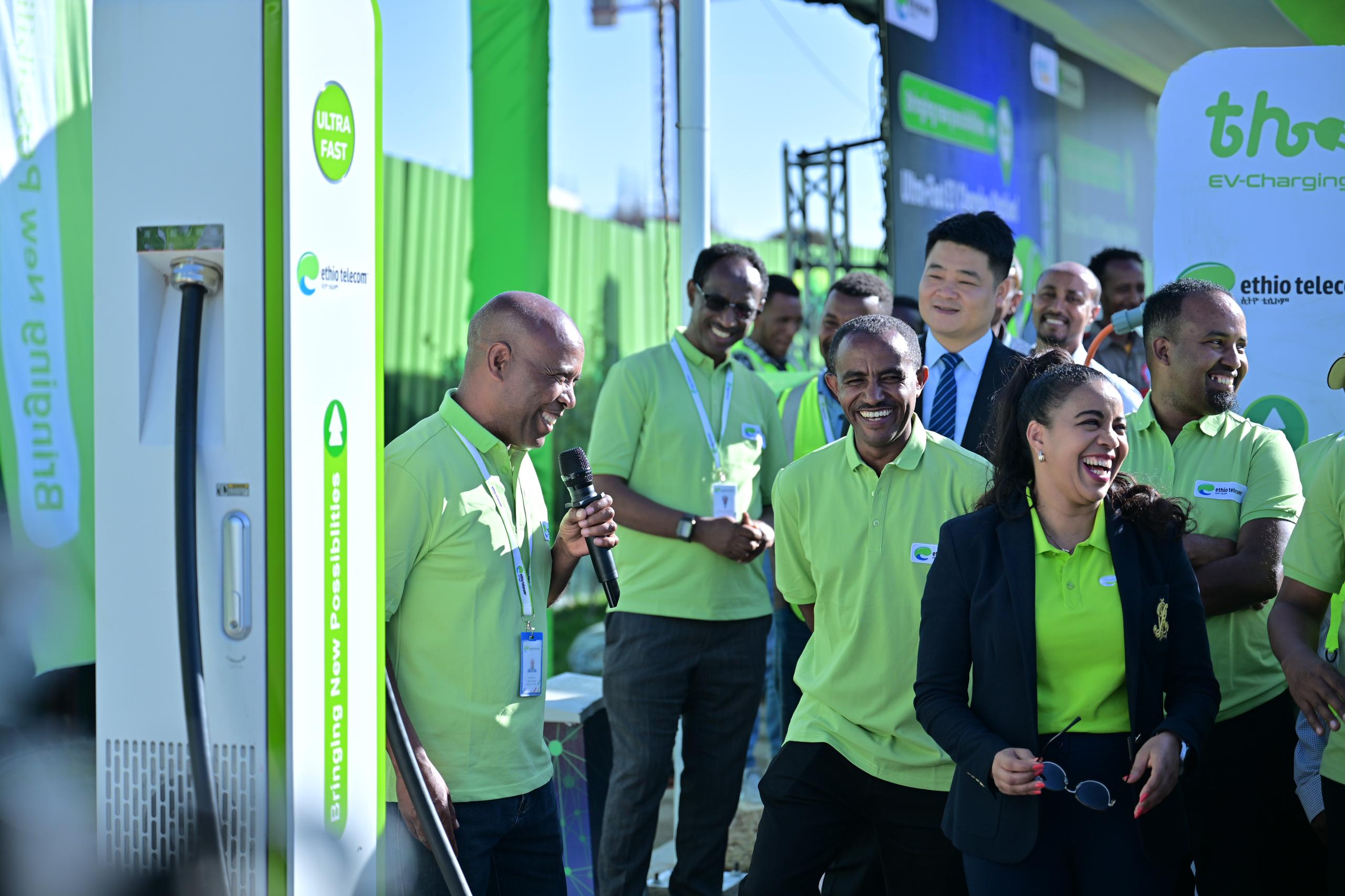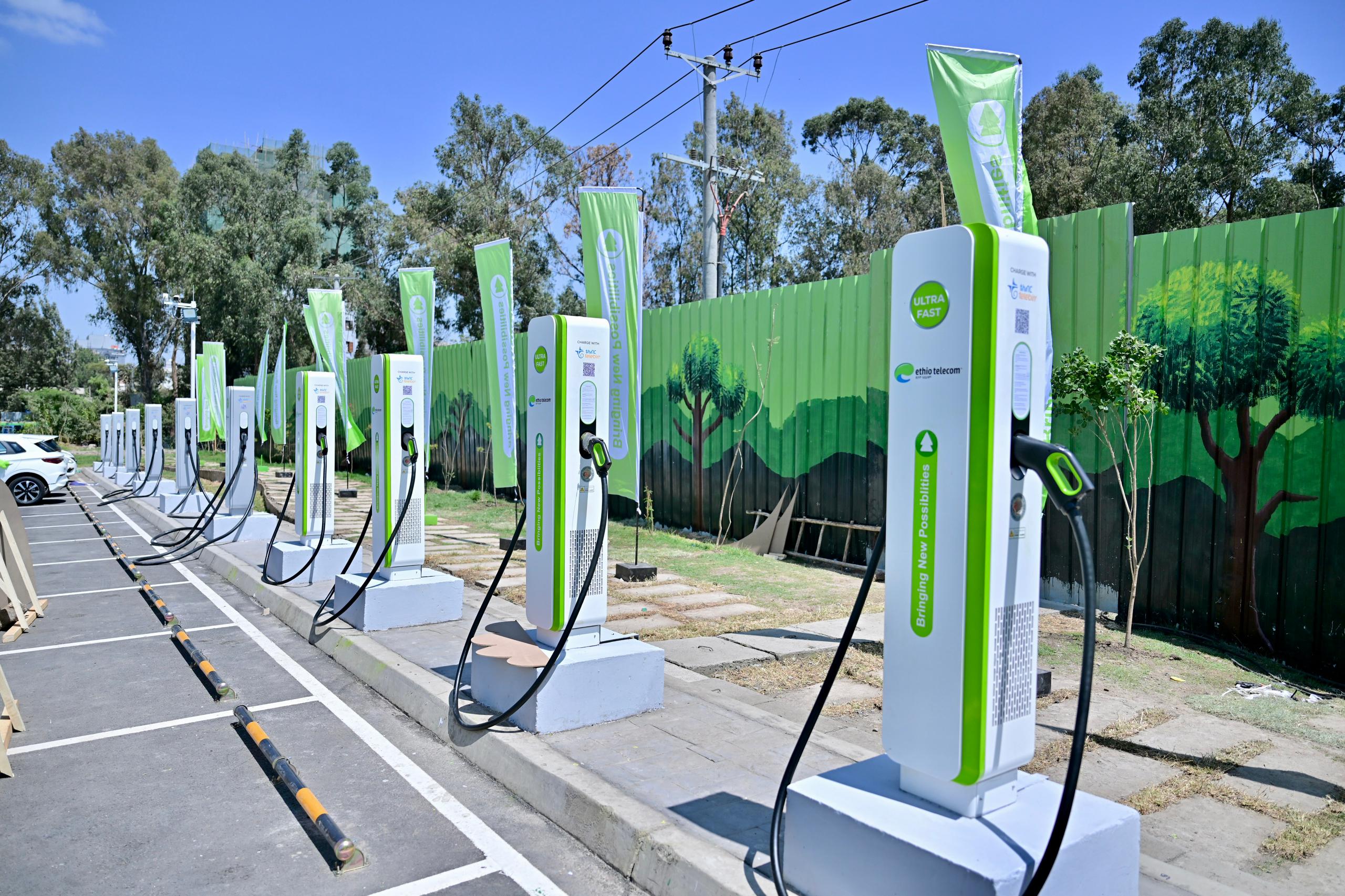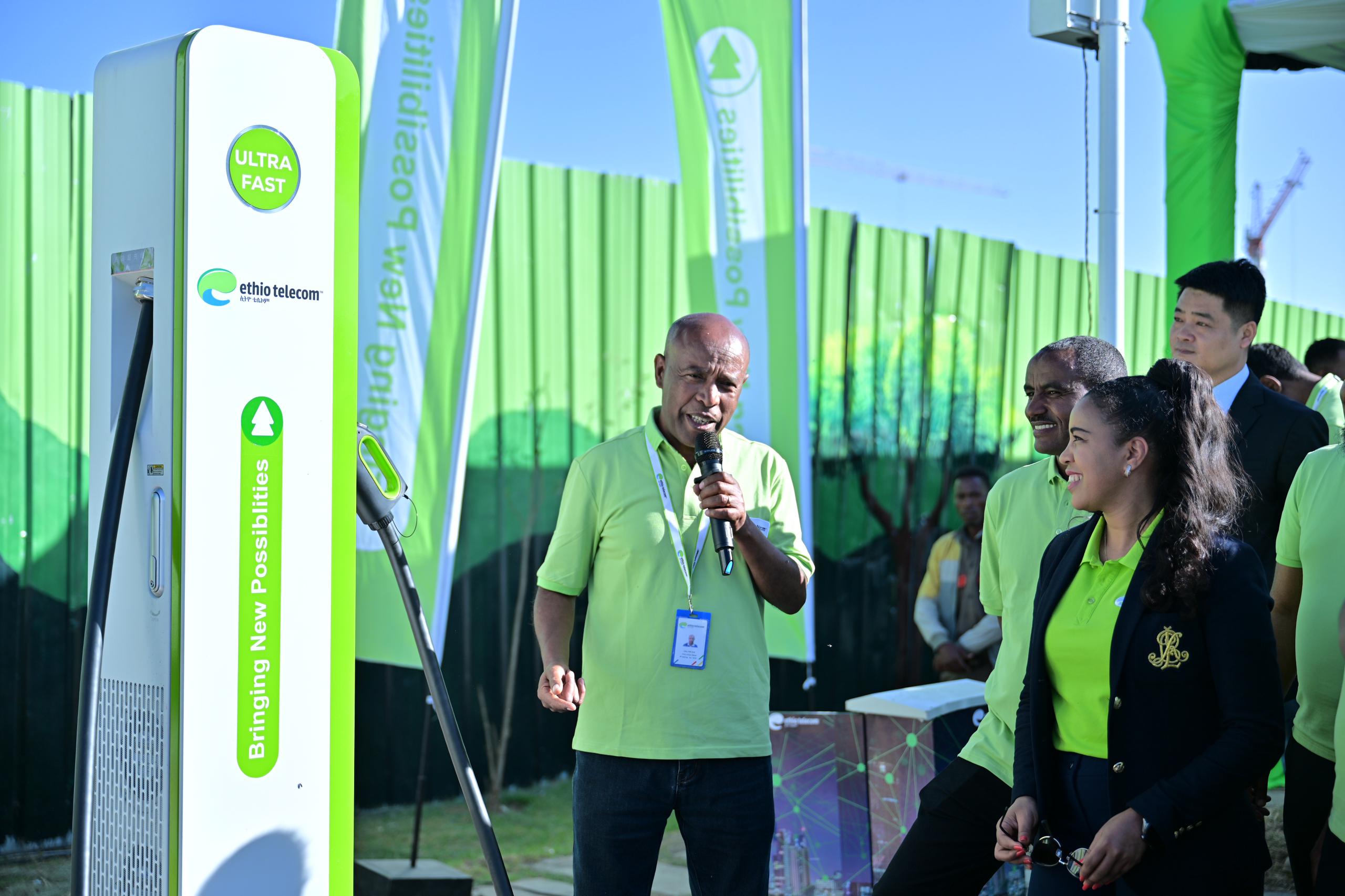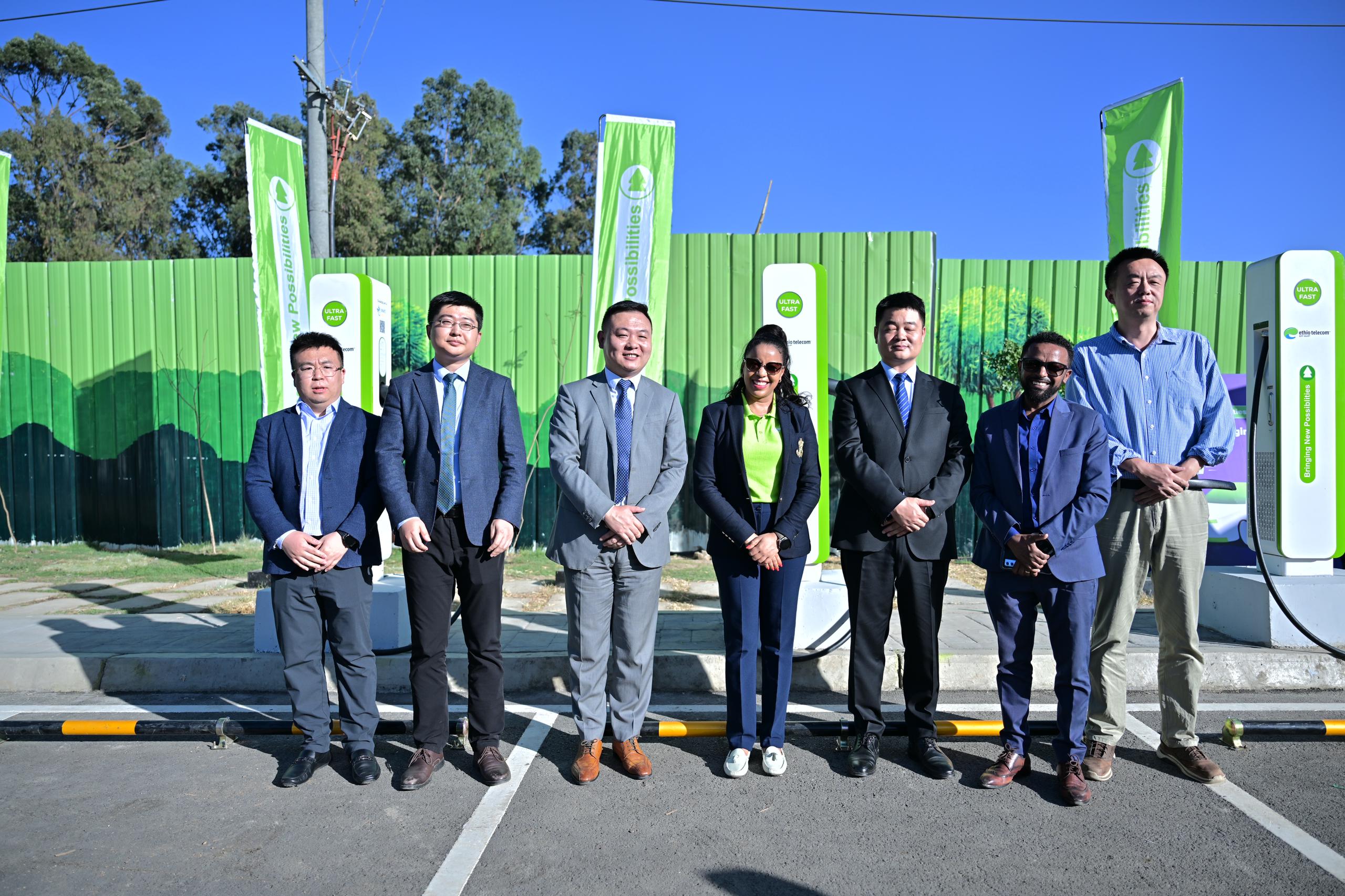
Sign up for daily news updates from CleanTechnica on email. Or follow us on Google News!
Last Updated on: 16th February 2025, 02:07 am
The EV charging hub can charge 32 EVs simultaneously! It includes eight 600kW ultra-fast chargers.
It looks like the electric vehicle charging scene in East Africa is starting to grow quite nicely now. This week, Kabisa launched the first ultra-fast charging hub in Kigali, Rwanda. The ultra-fast charging facility has chargers with a power capacity of up to 240 kW, compared to most of the existing charging stations in Kigali averaging 7.43 kW to 22 kW. The hub in Kigali has six charging bays allowing both private electric cars and entire commercial fleets of electric trucks, vans, or buses to charge simultaneously. This week was a big week for charging infrastructure in East Africa, as we got even more exciting news from Addis Ababa, Ethiopia.
In a major boost to Ethiopia’s growing electric vehicle (EV) ecosystem, Ethio telecom launched its newly built ultra-fast EV charging station on both sides of Bole to Megenagna road in Addis Ababa. Ethio Telecom is a telecoms provider in Ethiopia with over 81 million subscribers, including over 78 million mobile voice subscribers and over 44 million data and internet users. Ethio Telecom has a vision to be the leading digital solutions provider, with its slogan being “Bringing New Possibilities.” The company says introducing the charging network “aligns” with this vision.
Ethio Telecom says this state-of-the-art charging hub is designed to meet the increasing demand for fast, efficient, and smart charging solutions. The charging hub can simultaneously charge up to 32 electric vehicles, ensuring convenience and efficiency for drivers. According to the Ethio Telecoms website, some of the highlights of the ultra-fast charging hub include:
Smart, AI-Powered Charging for Maximum Efficiency
- Smart chargers designed for efficiency
- They leverage Artificial Intelligence (AI) to optimize charging speed and power delivery based on individual vehicle battery requirements and user preferences.
- This ensures faster, smarter, and more energy-efficient charging, enhancing the overall user experience.
The newly launched charging hub consists of:
- Eight Ultra-Fast Chargers (up to 600 kW each) — the chargers are capable of fully charging compatible vehicles within 15 minutes, enabling rapid recharges for drivers on the go.
- Twelve Super-Fast Chargers (up to 500 kW each) — delivering high-speed charging with optimal accessibility, and ensuring drivers get back on the road quickly.
- Smart Pole Chargers — integrated into smart city infrastructure, these Level II chargers provide emergency charging options for drivers in need and are located along various routes.
Other features that leverage Ethio Telecom’s existing ecosystem include a seamless digital experience via the telebirr app, featuring:
- The charging station operates 24/7 and is fully powered by the telebirr SuperApp, Ethio Telecom’s digital payment platform.
- Customers can pay charging services quickly, easily, and conveniently with telebirr.
- Drivers can charge their vehicles independently using telebirr, ensuring a seamless, cashless transaction experience.
- Smart Online Monitoring enables real-time tracking and efficient management via the telebirr SuperApp, ensuring seamless connectivity through fibre, 4G, or 5G networks.
This is a very interesting development for Ethiopia and will go a long way in catalysing the growth of charging infrastructure in the country. Last year, Ethiopia became the first country in the world to ban the importation of internal combustion engine vehicles. Whilst most countries have pledged to ban the registration of ICE vehicles in 2030 and beyond, Ethiopian did it in 2024. Ethiopia has even beaten countries like Norway that had announced bans years ago, with these bans kicking in in 2025. One can understand Ethiopia’s motivation for all of this, though. Ethiopia’s motivation? A high fossil fuel import bill of over US$5 billion a year, taking a huge chunk of the country’s scarce foreign currency resources. Energy security and self-sufficiency was another major driver. Ethiopia recently commissioned the first units from the 5,150 MW Grand Ethiopian Renaissance Dam (GERD). The GERD will add another ~15,500 GWh of clean electricity to the country’s energy mix. This means Ethiopia now has some exceptionally good locally generated renewable energy that can be used to substitute a significant portion of that huge import bill.
Since the restrictions on the importation of ICE vehicles were introduced, in Ethiopia, tens of thousands of electric cars have been imported into Ethiopia, most of them from independent dealers that import EVs from places like China. Some of the popular models that are easily recognisable are the Toyota bZ4x EV, Mercedes-Benz EQ range, VW’s ID.4 and ID.6, as well as the Changan Ben Benn E-Star. Official dealerships have also joined the party, with BYD being one of the latest to enter the Ethiopia market.
Of course, such a drastic move by Ethiopia to put a hard stop on the importation of fully built internal combustion engine cars was always going to introduce a lot of challengers, as there are still a lot of barriers to EV adoption that include lack of charging infrastructure and adequate technicians to work on EVs. A lot of people in Ethiopia had raised concerns about the lack of public charging infrastructure to support such a drastic move. With so many electric cars now on the roads in Addis Ababa, Ethio Telecom has heeded the call and has gone into the EV charging business. This initiative from Ethio Telecom has come at the right time and I hope to see more hubs like this being rolled out soon in Ethiopia to support the large number of EVs coming into the country.
Ethiopia’s Minister of Transport and Logistics had a 10-year plan and intends to support the import of at least 4,800 electric buses and 148,000 electric automobiles as part of that plan to catalyse the adoption of electric vehicles in the country. Like a lot of countries on the African continent, Ethiopia has an exceptionally low motorisation rate. Ethiopia has a population of 126 million people, but the total number of vehicles registered in Ethiopia is around 1.2 million. Most of these vehicles are over 20 years old.
According to reports and announcements from the Ethiopian government, Ethiopia had a plan to catalyse adoption of electric vehicles in Ethiopia, with a 10-year target to see 148,000 electric cars and close to 50,000 electric buses on Ethiopia’s roads by 2030. However, Ethiopia has made incredible progress on this path to the extent that the Ministry of Transport and Logistics recently said that this target of over 100,000 electric vehicles has already been met in just the first two years of this plan! How cool is that? Due to this incredible progress, the target has since been bumped up to close to 500,000 in the 10-year period.
Let’s take a moment to take this all in. So, in just 2 years, locally assembled EVs and imported EVs have added almost 10% to Ethiopia’s current fossil fuel vehicle registration total! Due to its extremely low levels of motorisation and the restrictions on the importation of ICE vehicles, Ethiopia could be set to have one of the fastest transitions — or the fastest transition — to full EVs in the world.
It’s great to see big corporates such as Ethio Telecom stepping int to support this transition by introducing these ultrafast charging hubs. It’s really impressive to see a charging hub here on the African continent that can charge 32 vehicles simultaneously. It’s also super cool to see that the hub has 8 chargers that can support up to 600kW and 12 that can support up to 500kW. Zeekr 007X and Li Auto Mega anyone? Those are just a couple of examples of EVs that would utilise the full potential of these kinds of charging hubs.
We will keep a close eye on the Ethiopian EV landscape and give you more updates as they come.
All images courtesy of Ethio Telecom
Chip in a few dollars a month to help support independent cleantech coverage that helps to accelerate the cleantech revolution!
Have a tip for CleanTechnica? Want to advertise? Want to suggest a guest for our CleanTech Talk podcast? Contact us here.
Sign up for our daily newsletter for 15 new cleantech stories a day. Or sign up for our weekly one if daily is too frequent.
CleanTechnica uses affiliate links. See our policy here.
CleanTechnica’s Comment Policy







